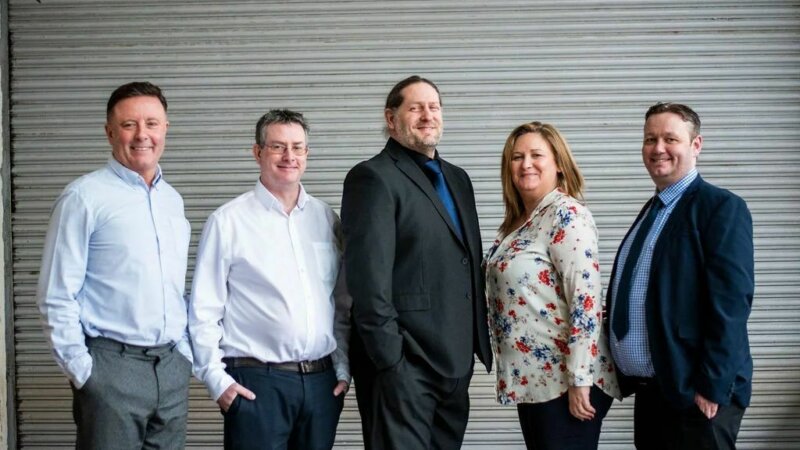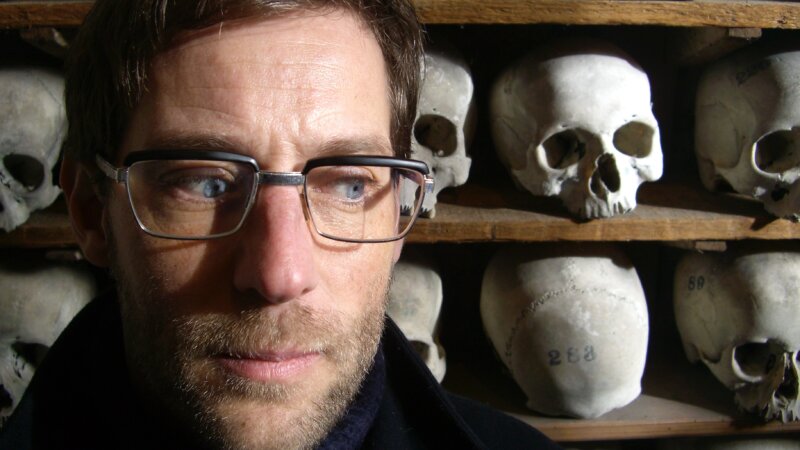Agency in the Workplace: Wicker Pharmacy
In a new series, Wicker Pharmacy Managing Director Ellie Bennett tells Now Then about the employee-owned venture which has served Sheffield every day since 1952.
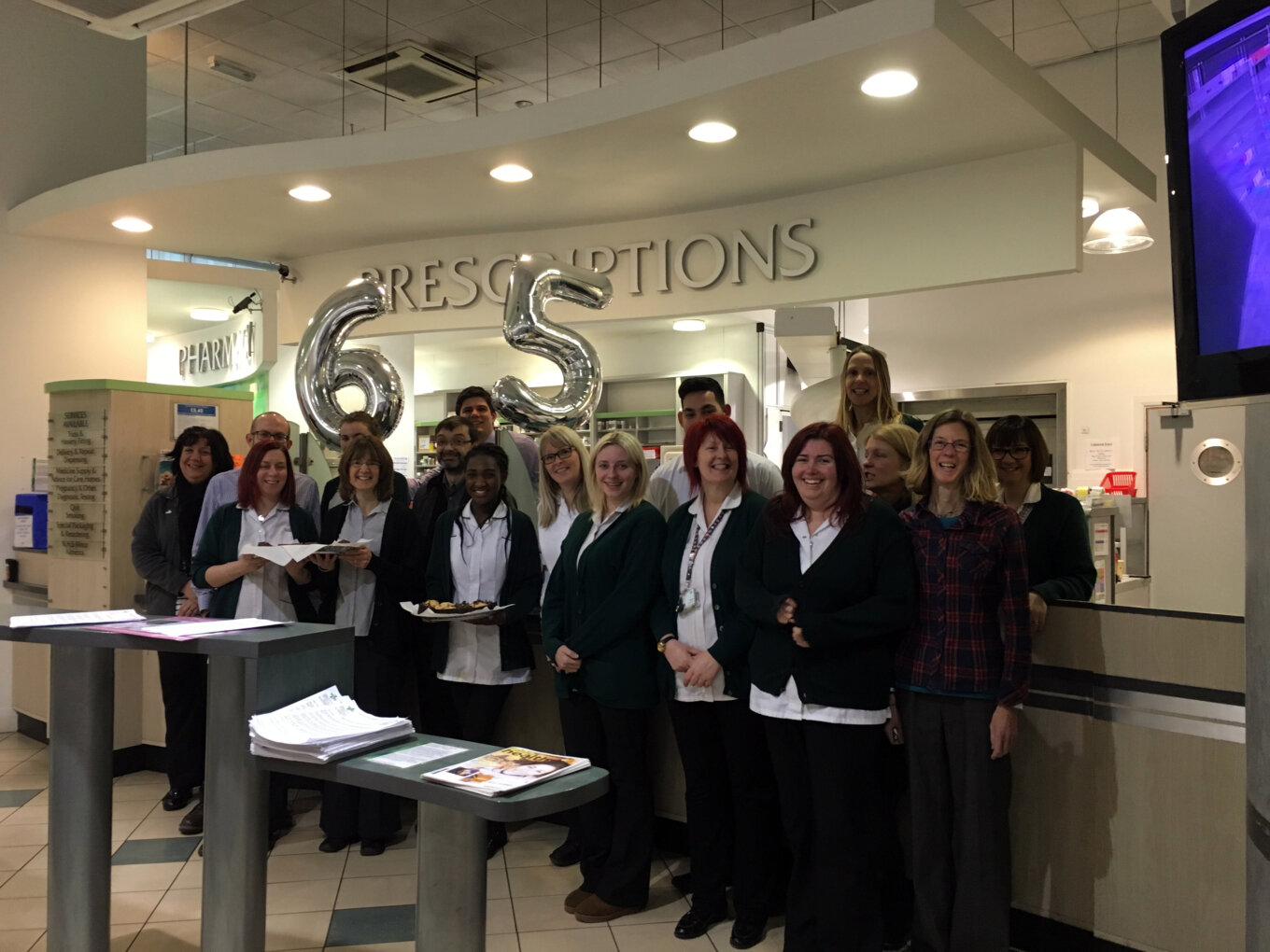
Wicker Pharmacy on the 65th anniversary of the business.
This piece is part of our generative inquiry entitled Agency in the Workplace, exploring worker ownership and worker control of organisations in South Yorkshire through the stories of local people. We are also hosting two events as part of Festival of Debate 2023: What if everyone had real agency in their workplace? (17 May) and Co-ownership drop-in session (23 May).
Associated Chemists (Wicker) Ltd has operated Wicker Pharmacy in Sheffield since 1952, opening its doors every day for more than 70 years in service to patients across the city, many of them from marginalised and disadvantaged communities.
In 2012 Wicker Pharmacy started the journey towards employee ownership. Today, around 75% of the business is owned by employees.
Ellie Bennett is Managing Director at Wicker Pharmacy. For the first piece in a new Now Then series exploring agency in the workplace, Ellie told me more about her experience of part-owning the business she has worked at for almost 35 years.
How has having ownership in your workplace changed your life?
I think it's given me the feeling that I have more autonomy than if I worked in a different organisation. Everyone here, hopefully, feels like they can make suggestions that will be listened to. I think lots of people feel a loyalty towards the organisation in a way that they wouldn't do otherwise. And so I feel quite cared for.
We had to open throughout Covid and, you know, that was a scary time for everybody. But I did feel that the organisation was doing its best to take care of their employees as much as they could, given the circumstances.
I think for me personally, I feel like if there was some particular avenue I wanted to pursue [at work], and I could persuade everyone it was a good idea, then I could do it. I wouldn't be restricted. So I guess: freedom.
In my own experience, the contrast between working in other organisations, let's say more traditionally-structured organisations, versus the way I work within Opus – there's a day and night difference there. Is that something that you've experienced in your own work life?
Well, I’ve worked here a really bloody long time! I've worked here, on and off, since I was 16, and I'm 50 now. There's lots and lots of people who've worked here a really long time.
I did work for the University of Portsmouth for a few years as a Pharmacy Researcher and that was a completely different kettle of fish – you know, voiceless beings making pronouncements about stuff. Whereas here, I understand the reasons for decisions that are made.
What commitments do you hold that are important for you to honour in your work?
I guess a knowledge that what we do is ethically right, for the good of patients. I know because of the way that we're owned, we might take different decisions than other pharmacies, because we've got a commitment to continue to offer a service to the people of Sheffield.
Some of the decisions we make might be not particularly profit making, but we actually think it's a good thing to do. So as long as we can get to a point where we're breaking even at least, then we will try and pursue things. Whereas I think a lot of pharmacies – well, they're owned by [corporate] ‘multiples’, they've got accountants that are looking at the bottom line all the time. So their choices [are] around what makes the best profit. I'm not saying that they don't make ethical choices – they do – but we have more freedom.
So I guess that sense of everybody should be treated fairly, both within the organisation and patients, some who are really disadvantaged.
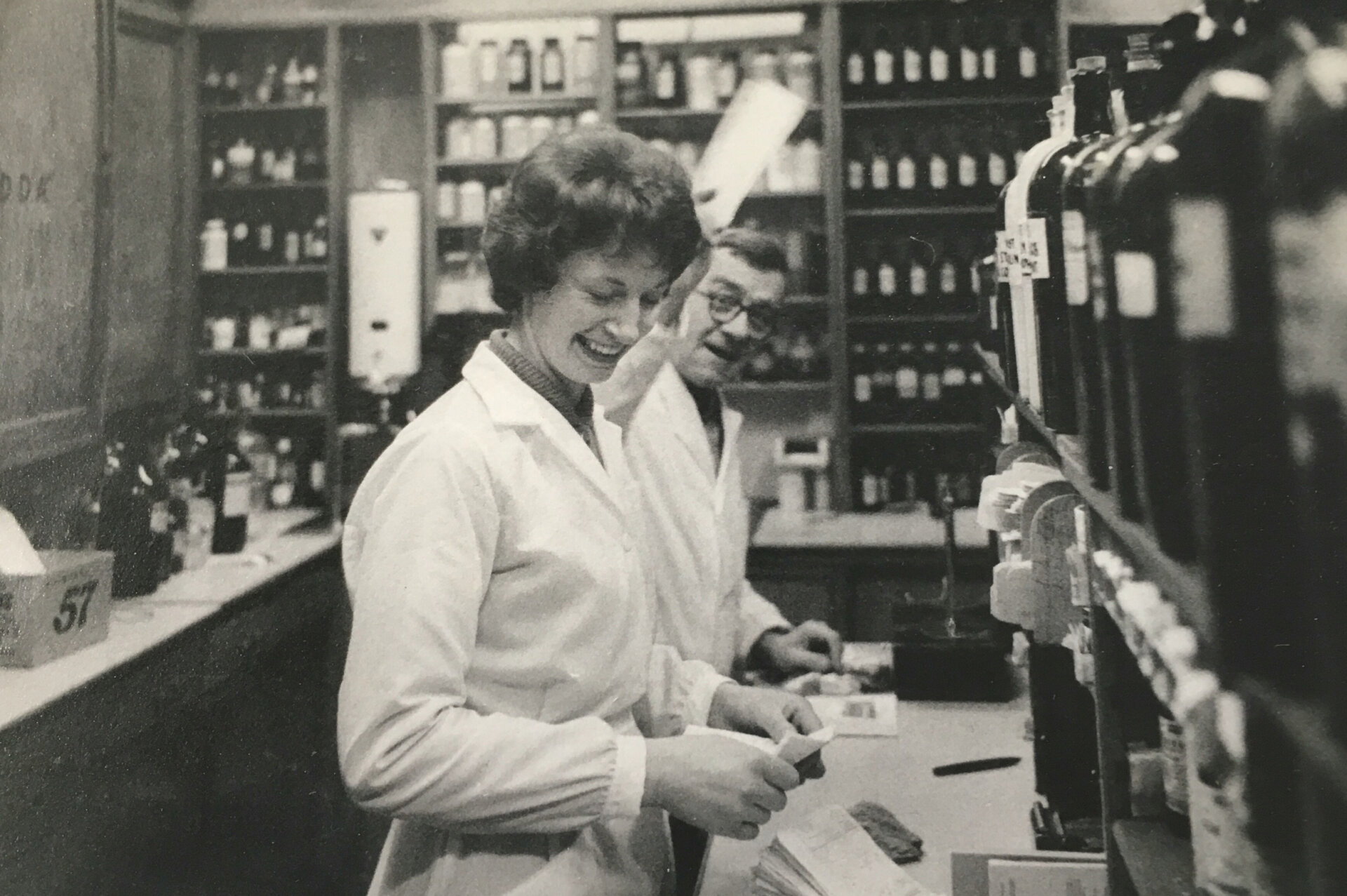
Wicker Pharmacy staff in 1952.
I had a look on the website before we started this chat, and the flavour of how you present what you do clearly comes through. Is that an important part, the way that you present yourself to the world?
Yes, absolutely. We want to be known as an ethical organisation. We're going to treat our employees well, treat the people of Sheffield well and do the best we can as a pharmacy. We don't always get it right, but we try our best!
I think it says on the site, you've basically never been closed since…
1952!
Is that some kind of record?
I don’t really know! You would think so, wouldn’t you? I think there are pharmacies that are older than ours, but I don't know if they’re open every day-style pharmacies.
I mean, that takes a real commitment, especially during Covid. So many pharmacies had to close because pharmacists were ill. You're not allowed to be open as a pharmacy unless a pharmacist is present.
I think, because of the kind of organisation it is, our pharmacists have been extremely willing to give up their spare time. If somebody else was off ill, people would say, ‘Yeah, I can come in after I've already worked for a day. I'll come in and do a few hours this evening.’ That kind of commitment – which I've found awe inspiring.
Lot of pharmacists have trained – obviously, we've been
open since 1952! – lots of pharmacists in Sheffield either trained with
us or have done some time working with us. So I feel like we have a soft
spot in many people's hearts. And a lot of the dispensary staff work
with us and then go on to work in hospitals and other sectors. So we
have lots of people who will come back and do a shift here and there. I
think that's partly because of the way our ownership is. It feels very
much like an extended family. People go off and live somewhere else, but
they come back and visit now and then. So that part of it is really
nice.
What would you like to see happen next?
I would like to see us be fully employee owned. At the moment we've got an employee trust [which] owns a certain amount of shares. I think overall, we're probably 75% owned by employees, people who are working here right now. The remainder of the shares are owned by people who used to work here, or the spouses of people who used to work [here].
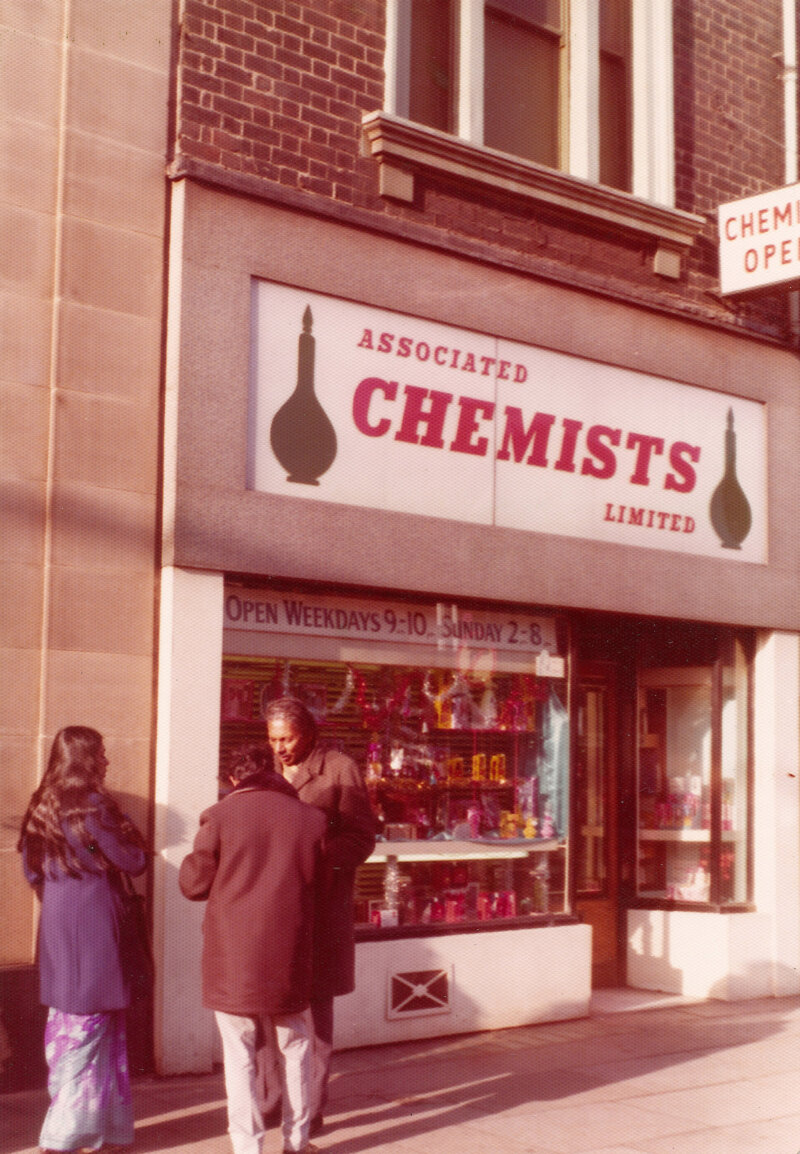
Wicker Pharmacy in 1970.
So I would like to see it become completely owned by the employee trust, which owns the shares on behalf of all the people who are employed at that moment in time. I think that would be a positive step forward, but unfortunately, we've been completely screwed on funding, so that has been a difficult aim to achieve over the last ten years. But I'm an optimistic person. Maybe one day – you might need a change of government – but at some point someone's going to realise that they should pay pharmacies properly.
Is there anything that you want or need from the community at large to achieve that aim of 100% current-employee ownership?
We did actually consider crowdfunding at one point. There was a point where we were just like, ‘This is ridiculous. We are a community resource. Actually, maybe what we should do is try and crowdfund the ownership of this and then leave it as a community resource forever for Sheffield.’
At the time – I think this was just before Covid – we were busy, so that was the end of the idea for now! Not saying that's something we might not revisit in the future.
If worker-owned organisations became the norm, how might communities in South Yorkshire change?
I think it might lead to more cooperation. We already have good links with a series of community groups. I think partially because of the way we work, if we can do it, and we think it's a good idea, we'll do it. I think other people would start thinking like that, rather than just being like, ‘Oh, actually, no, that's not something we normally do.’ You see what I mean?
For example, we've got within our building a charity called Sheffield Working Women's Opportunities Project (SWWOP). They work with trafficked women and sex workers. They do an amazing job. I feel like if there were lots of organisations who have that community base – who are actually thinking, ‘What's best for our community right now?’ rather than, ‘What's best to get the maximum amount of money in, to give to somebody who lives in a different country?’ – perhaps then everybody would benefit.
So it's that idea of serving a community with what you do as an organisation.
Yes. Because I think, if you've got people who live in the community actually steering the direction of the organisations within that community, hopefully they're going to decide to make choices for the good of the community. Then everybody wins.




